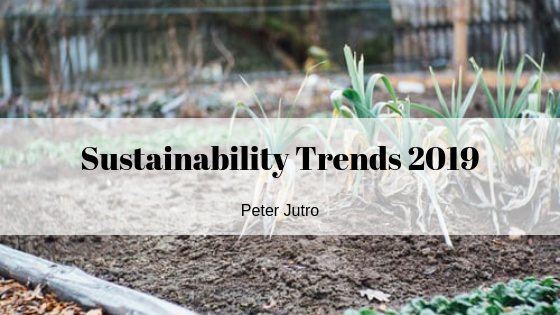With more nationwide and local initiatives promoting sustainable practices, sustainability has become somewhat of a hot topic. In order to encourage healthy habits, limit further damage to the planet, and endorse sustainable actions, the following trends may influence the nature of sustainability practices now and in the future.
Plastic Reduction
For more than two decades, plastic pollution has been considered a significant issue, and many organizations and initiatives have sought a solution. Despite the knowledge that plastic has contaminated land and oceanic environments, plastic pollution has continued to grow over these past few decades. Recently increased efforts to recycle plastic could begin to reduce the effects of plastic pollution. With more pressure to reduce the production of single-use plastics, several companies have been seeking alternative methods and materials. This year may well show a rise in the number of educated consumers, allowing them to choose more sustainable alternatives.
Sustainable Farming
Though often overlooked, the prospects of regenerative agriculture are intriguing. The primary idea behind sustainable farming is the desire to implement alternative farm management strategies that promote the growth of crops with more nutritious value as well as improving the soil to allow it to store more carbon, rather than releasing it into the atmosphere. Intercropping and carbon sequestration are the two primary methods of alternative farming believed to influence the amount of carbon stored in the soil as well as the overall productivity and resourcefulness of available farmland. Additionally, in order to preserve the populations of pollinators and limit the number of harmful chemicals used to protect crops, an alternative approach to crop protection would involve the usage of carefully selected naturally-occurring insect predators
Sustainability Education
We are seeing growth in attention to sustainability education and an increase in the population of informed consumers. With an increase in available information online and increased pressure to adhere to common global goals, individuals have greater opportunity to learn about sustainability and identify how they might integrate sustainable practices into their everyday lives.
Social Pressure
The use of social media as well as campaigning and crowdfunding tools, combined with the pressure of individuals, environmental groups, some corporations, and some governmental organizations, could result in companies implementing more sustainable practices. One such avenue is through what is known as a B-Certification, provided by a global non-profit organization; only businesses that meet certain social and environmental performance standards can be awarded this certification. With the heightened pressure to be environmentally conscious, such certifications could make a difference in the size of a company’s consumer base over time.

